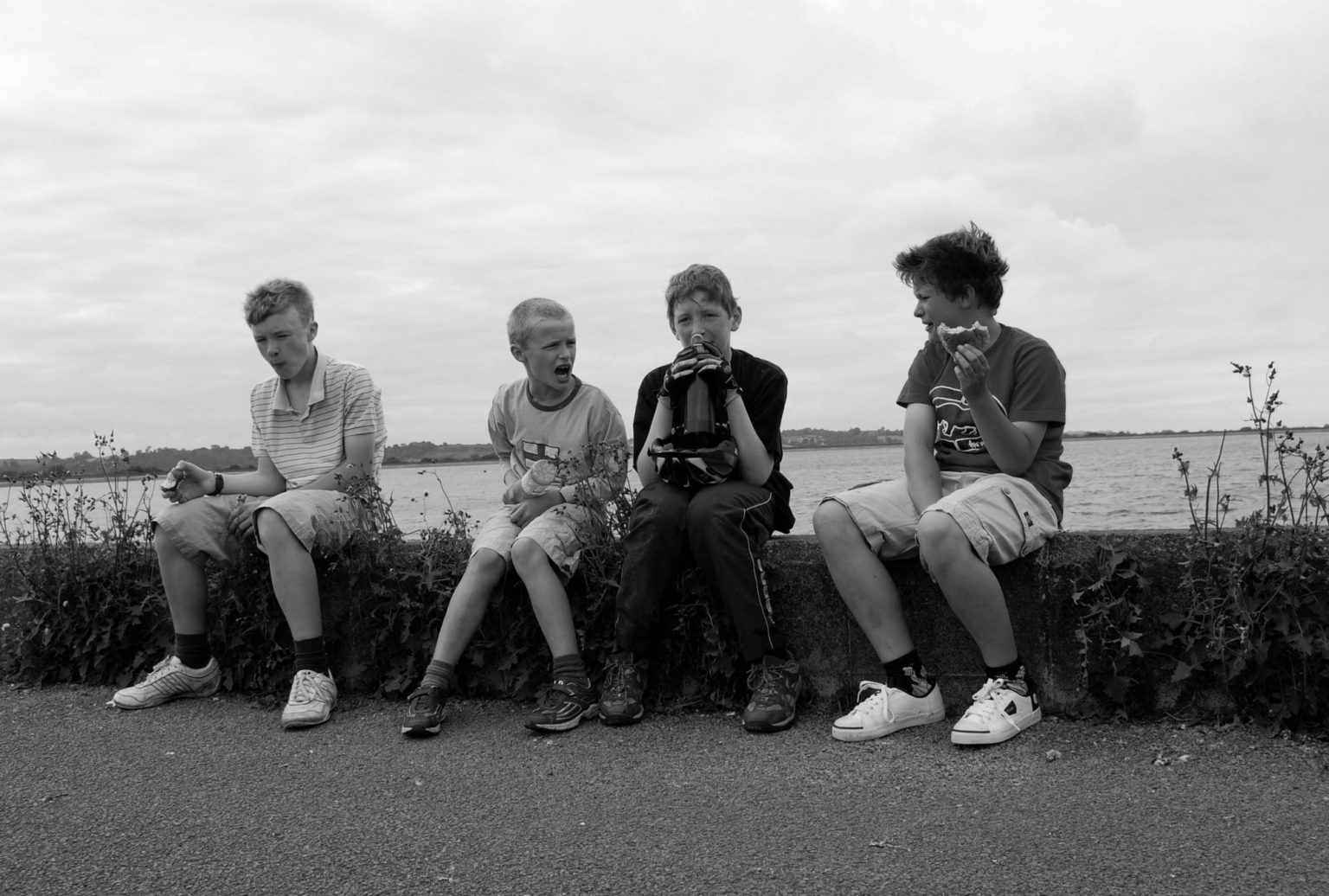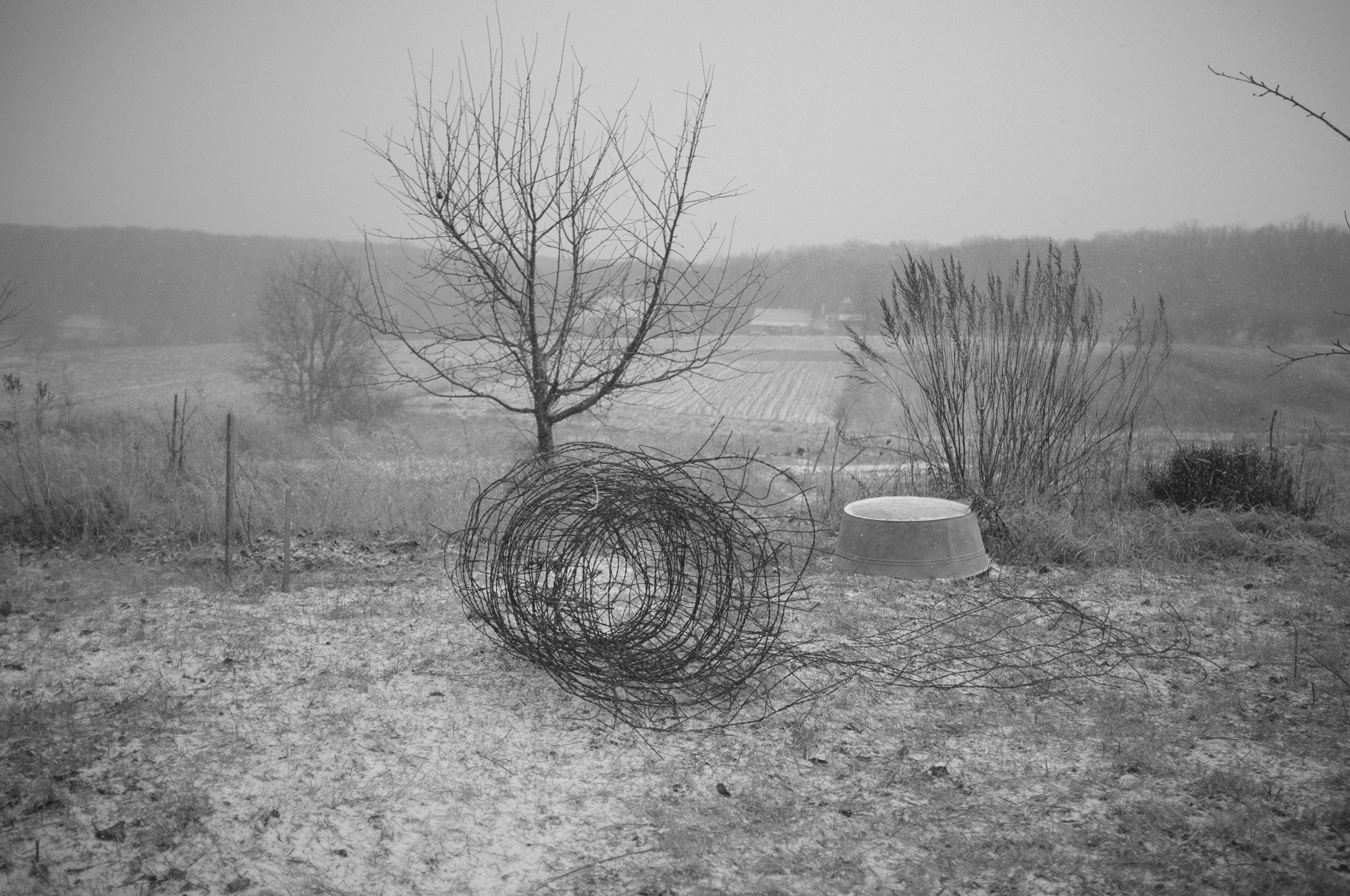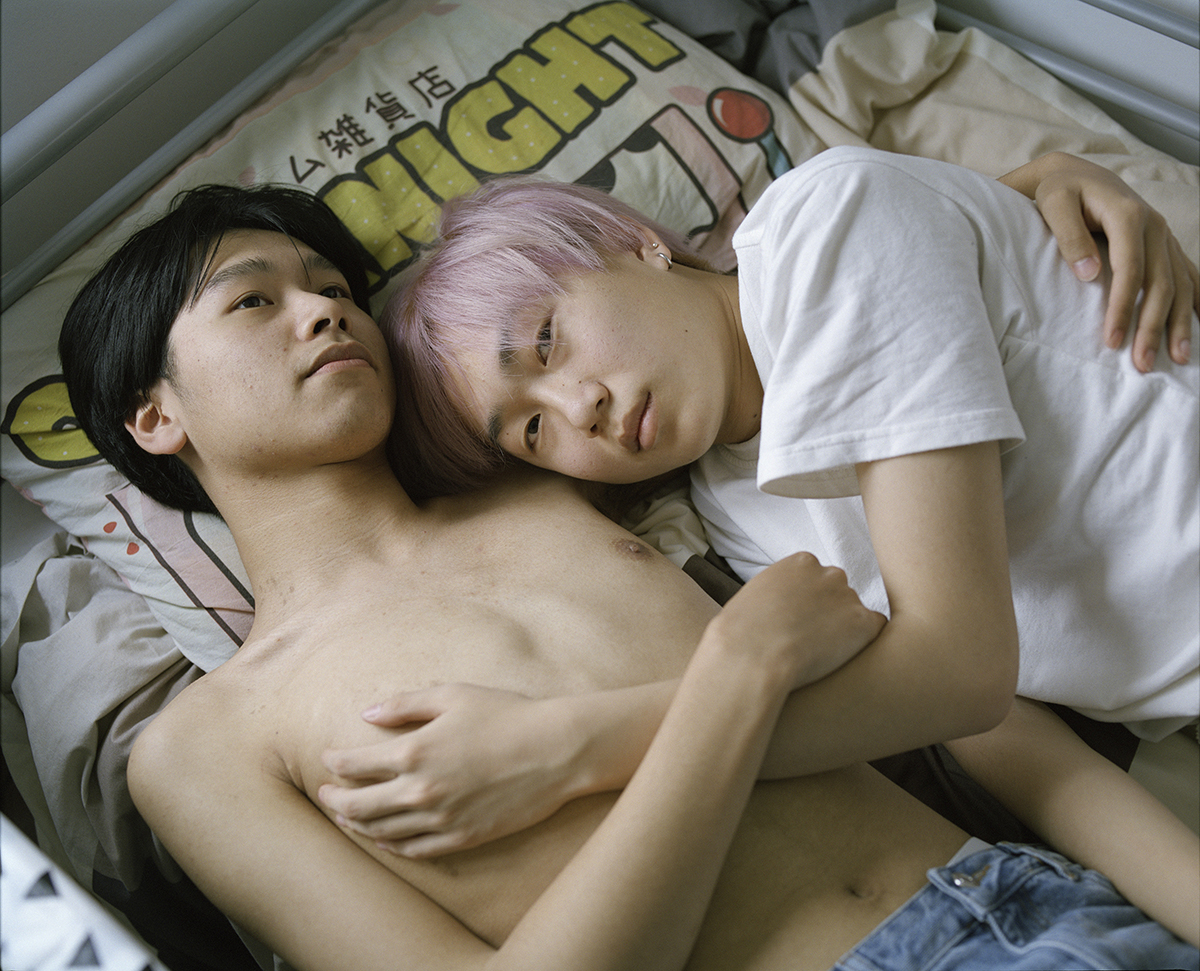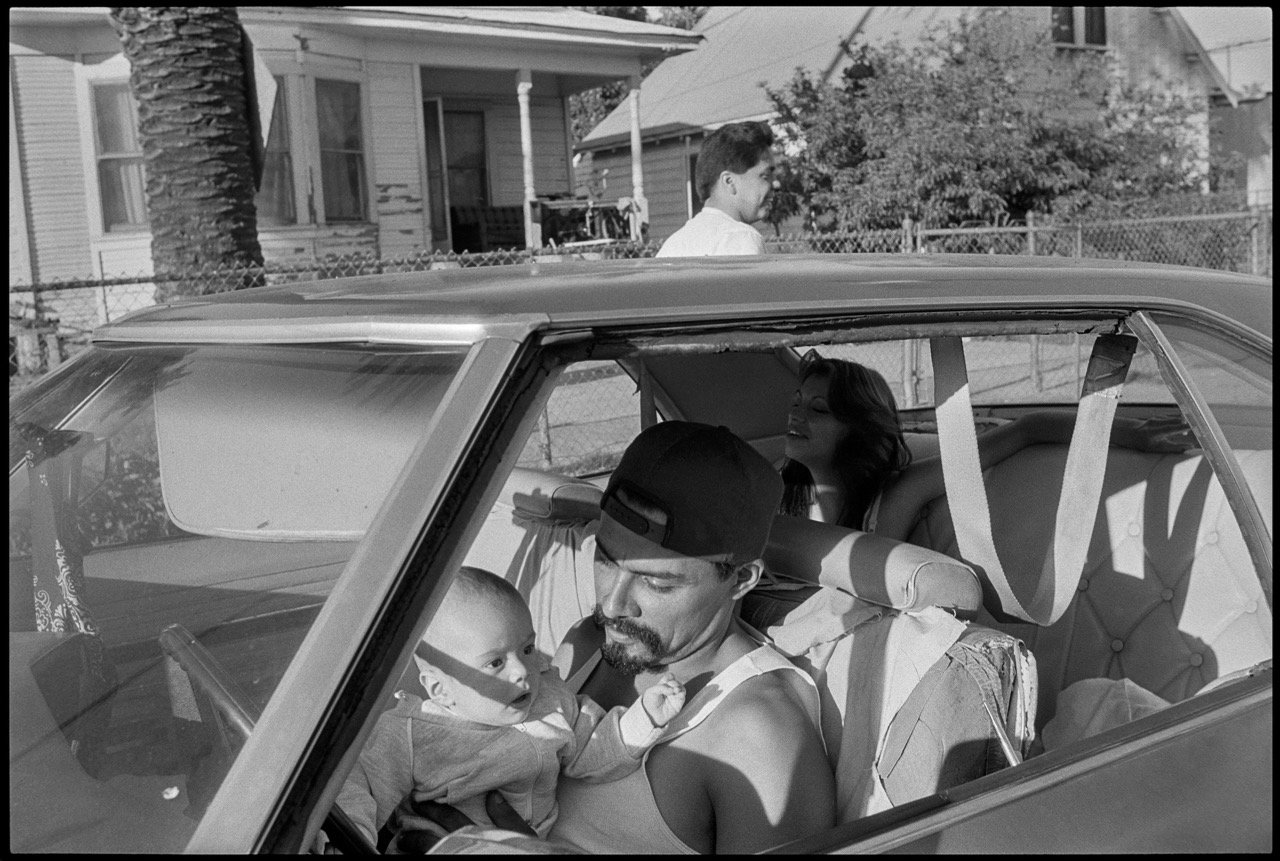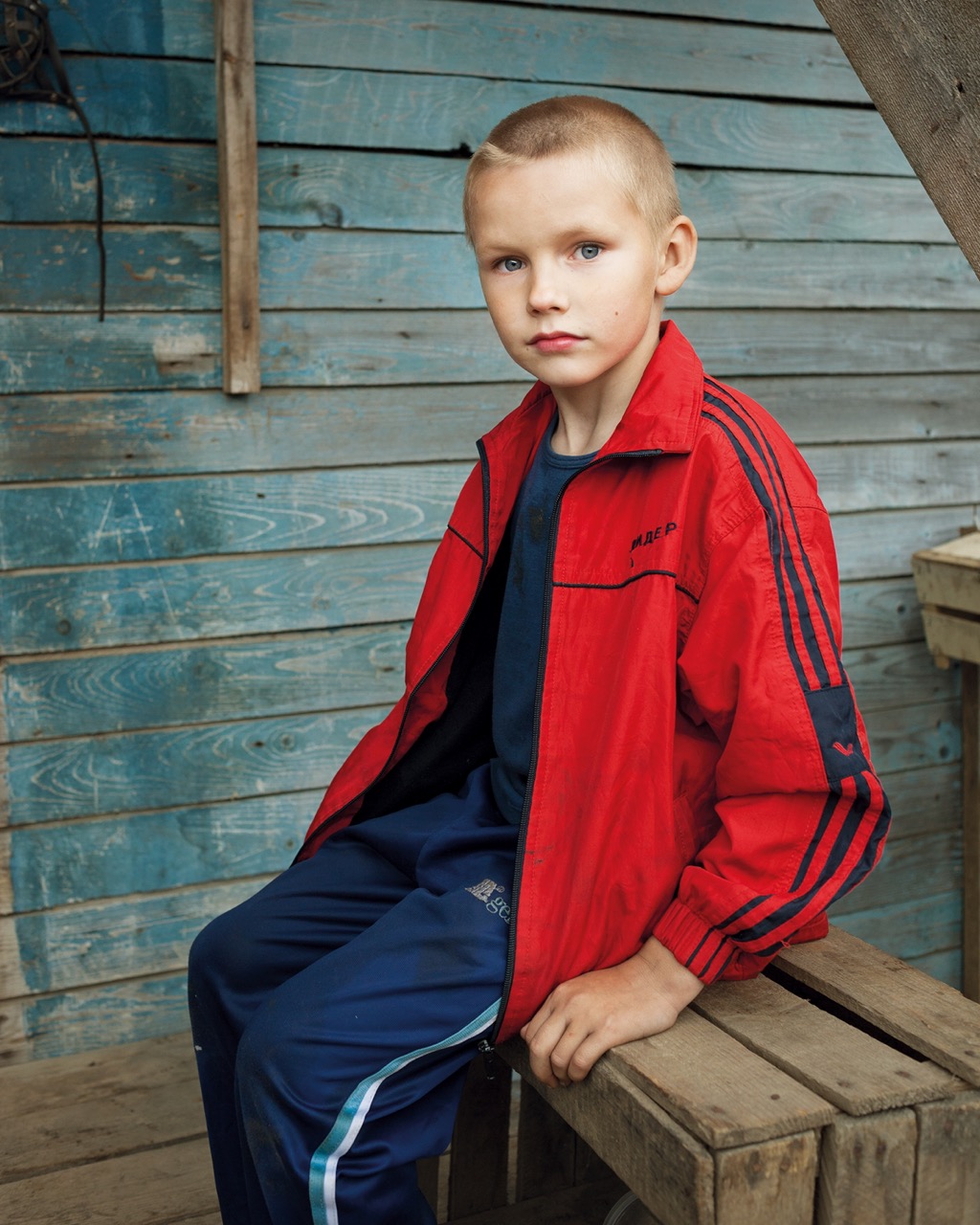Our childhood is one of the most important times in our lives, it is when we develop and grow into the adults, a nostalgic period. South East London based photographer Alex Wheeler documents adolescence in a series that is best described in her own words. “Here is seven years of growing up.”
Seven years is an impressive amount of time for a series, how did you know the boys, are they family?
Yeah I can’t quite get my head around how long it’s actually been. The boys are my cousins but they’re more like brothers really. It’s a cool relationship.
How often would you photograph them?
Whenever I can- it’s fairly easy to get hold of them. I would just go and stay with my auntie and uncle and document whatever they were doing at the time. Although Harry’s moved out now, I have to plan it a bit more. It’s strange how the dynamics of their relationship as brothers has changed since he’s gone, not photographically, but it the way that the behave with each other. All three are really easy going and they have never objected to having their picture taken. Actually that’s a lie, recently Jack, the youngest, has said no to a couple of shots. There is one photo which I took a few months ago, where he’s is hiding his face because he didn’t want to look at the camera. That’s the first time I’ve been rejected, which is great, I like that it’s a realistic documentary of how they are developing. The photo isn’t in the seven years project though, I’m currently working on the eighth year, and Jack is now a teenager, which I suppose explains a lot.
What made you want to do this as a series what inspired you?
God, I’m not sure. I started photographing Harry when he was about 12. I made him loads of outfits and we went to this park and he just didn’t care. He would do whatever I told him to, which was such a different reaction to what I had received from other kids his age (I only photographed children at this point, at that time my friends were too cautious with their appearance- kids don’t give a fuck). After that, I just kept photographing him, and then the following Christmas, I asked Charlie and Jack, who were both much younger, if they would mind being in some of the photographs as well. I then stopped doing posed stuff, and began documenting whatever it was they were doing and the body of work sort of just went from there. I much prefer this natural approach as opposed to forcing it through costumes and places that they never really went to- like that park. I wrote down conversations they would have with each other as well, just for a bit of context, which really helped it all progress.
If I wanted to sheerly focus on how tall they’d become, I’d just measure them against a wall for seven years and photograph that instead.
The images in this series capture the boys youth and act as a retrospective to their lives as the series carries on; rarely you get the chance to visually see people growing up. What does growing up mean to you and do you feel you tried to show this in the series?
I’ve always been slightly envious of children. I think it’s that carefree attitude which, as adults, you sort of romanticize or reminisce about. Growing up is hard – for many reasons but I don’t think it’s something that’s talked about that much.
We see it all physically and say things like ‘oh you’ve grown!’ and whenever someone said that to me, I would be like ‘well yeah, of course I’ve grown, it’s been five years.’ We all say or think things like that without realizing (even though I remember thinking, aged eight that I would never say to any child ‘oh you’ve grown’ but I have, loads, it’s like a really annoying reflex) but a lot of the time, it’s never any deeper than that. And in a way, I haven’t tried to show anything deep and meaningful in my work as such, it is almost a response to that ‘oh you’ve grown’ saying, because, yes, the boys have grown, but also, there are a lot of other things that have changed- their mannerisms, their way of interacting with one another, maturing, and that is what I have wanted to capture. If I wanted to sheerly focus on how tall they’d become, I’d just measure them against a wall for seven years and photograph that instead. I want people to feel like they have known and grown up with them, but through pictures- and without all of the shouting and swearing that I had to endure while taking them.




You must have certain memories attached to the images, what are some of your favourite shots and why?
The photographs of Jack with a shaved head. He was ten, maybe eleven and my auntie asked me to take him to the hairdressers. He had all this beautiful white-blonde hair, which you can see in a lot of the photos that were taken before, and I took him to the barbers and asked for a #1 cut because I’d forgotten what my auntie had asked for. I had no idea what a #1 was, and he came out with this look on his face like ‘I hate you- put that camera away.’ We then went to meet Harry and Charlie and their friend Isaac (who is also in some of the pictures) at this reservoir, and that day was when I took some of my favourite photos. Jack looked so pissed off because the others were teasing him- those facial expressions are all real and it worked photographically. My auntie nearly cried when she came home from work. My uncle laughed and called him a Nazi. He didn’t have his hair cut for about nine months.
What was your childhood like? Do you think it influences your work?
I was living inside my head most of the time. I mean, I had a great time in there, but none of it was real. I was always living in this weird world, I found it hard to know how to let anyone inside, because they couldn’t experience what I was, apparently, ’experiencing’. I suppose another way of looking at it was that I didn’t want to either. Imagination was a massive part of my childhood, but sometimes, the problem with imagination is that you can fool yourself into thinking it’s better than what”s in front of you. Which, I suppose, is part of the reason why I started this project. The boys, had a totally different way of living through their adolescence- maybe documenting them was my of getting a second go at it. Everything looks a hell of a lot better in photographs anyway, and had someone been photographing my childhood, maybe the viewer would have got a different impression from what I just described. It’s so easy to look at the photos and think, wow idealistic childhood, but actually, the camera can depict things that aren’t always there- or miss the things that are. I haven’t done that with the boys though. The photographs are exactly what happened at that point in time. There are no grey areas, unlike being an adult, where there seems to be loads.
Imagination was a massive part of my childhood, but sometimes, the problem with imagination is that you can fool yourself into thinking it’s better than what’s in front of you.
How important is your hometown to you? Would you rather move away or stay?
I was born in South London, and even though we moved away when I was pretty young, I still remember it. I grew up near Reading and didn’t like it much. I knew that was never where I wanted to end up, but that’s the same with everyone isn’t it? I mean, I didn’t know where this place was that I wanted to ‘be’ anyway, I would just invent it. I moved back to South London for university, and have been here ever since. I would move again though when I’m older maybe, somewhere warmer where it’s cheaper and not so hectic. I adapt to different environments very quickly, and sometimes I feel like London makes me go a bit mad.


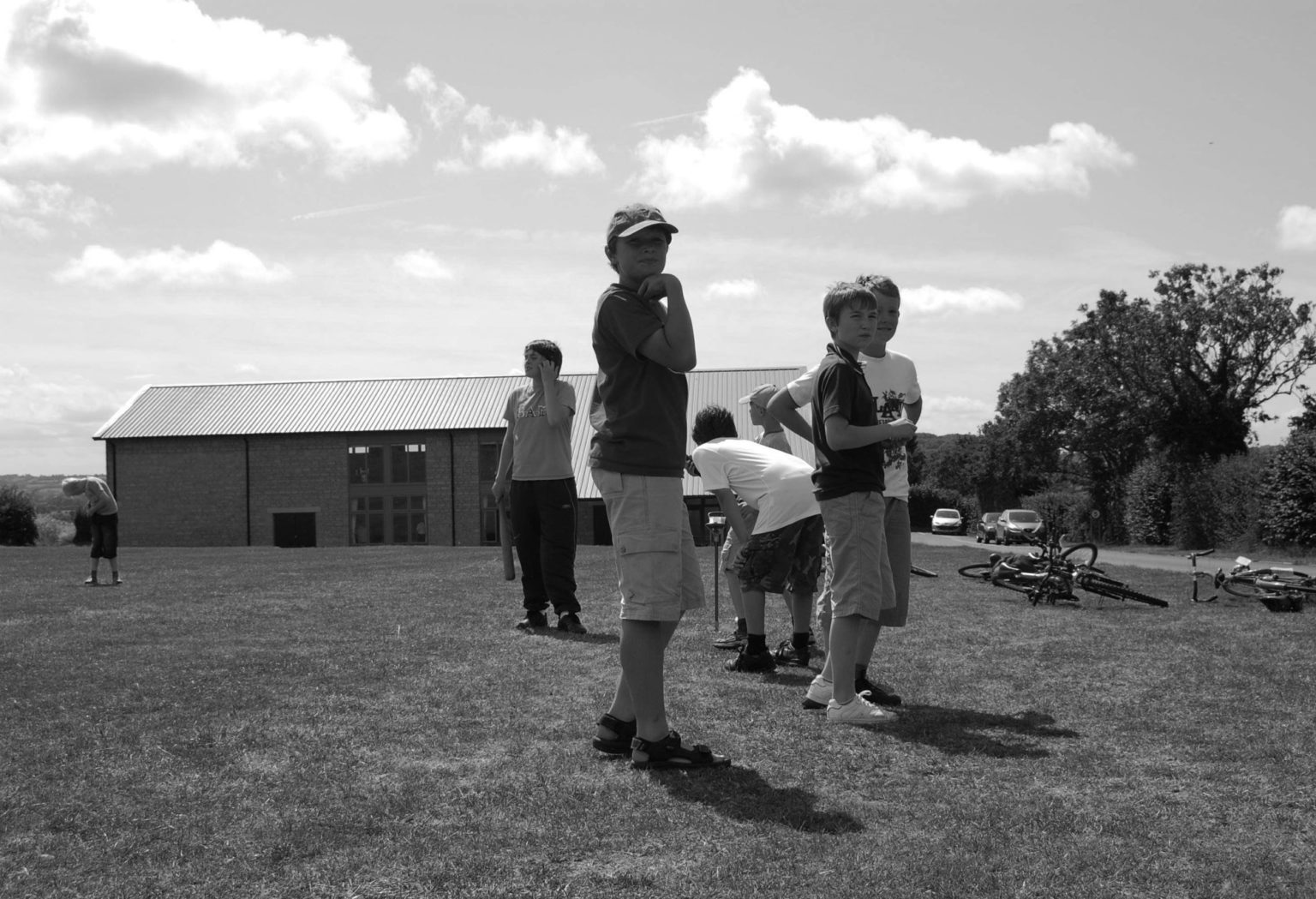
What in your life now has most shaped who you are now?
Lots of things. I think the more you go through- and that can be absolutely anything, it helps you in later life and I’ve definitely become a much stronger person due to certain things that have happened to me. My imagination hasn’t toned itself down, which is fun. It’s something that I managed to nail when I was very small, and I’ve always relied on it form of escapism. Getting out of situations by going into my own head, which has its consequences- good and bad.
Is the series finished now or will you continue to photograph?
It’s not finished. I don’t think I’ll ever finish. I’m in my eighth year photographing them, and I want that year to turn into nine, and then ten and then twenty. Maybe get their children involved as well, if they have them. Either way, I don’t really see why I should stop.
What advice would you give to the children of today?
I don’t think children need advice. They should just be themselves. Maybe that’s advice? I don’t know. If they wanted to say something, or ask questions then that’s different, but to start giving advice to a child would be to instantly introduce them to doubt and uncertainty- in other words, being an adult. I wouldn’t want to drag any child into that. Jesus, I sound like Peter Pan.









